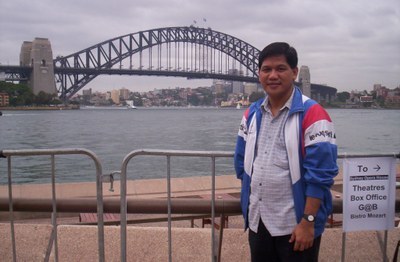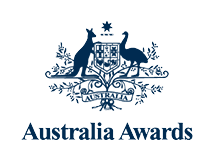From a College to a University: a REAP Success Story
Leonardo Ibot knew too well how difficult it is to teach in a rural college in the Philippines, and much more in Mindanao, where illiteracy and poverty permeates. A product of a rural college himself - the Sultan Kudarat Polytechnic College in Tacurong City – Leonardo knows that the road to a vocation on teaching is rough and difficult in his province.
The Sultan Kudarat Polytechnic College is the only established center of higher and tertiary education in the Sultan Kudarat province and other towns of neighboring Sarangani province.
The twin malaise of illiteracy and poverty continue to haunt Sultan Kudarat and its neighboring communities, not only because of local strife or cultural conflict, but because of lack of opportunities. The quality of education – both in teaching and learning – is also expectedly poor because the teachers do not have opportunities to improve their competencies and excel in their chosen profession.
“I knew inside that there is an answer to all these, if not in my province and my people, surely just beyond sight,” Leonardo said.
 Returning from taking a Master in Educational Studies (Pedagogy) in the University of Newcastle in Australia as an Australia Awards scholar, Leonardo set out to implement his re-entry action plan—enhancing the teaching competencies of teachers at the College of Education of the Sultan Kudarat Polytechnic College.
Returning from taking a Master in Educational Studies (Pedagogy) in the University of Newcastle in Australia as an Australia Awards scholar, Leonardo set out to implement his re-entry action plan—enhancing the teaching competencies of teachers at the College of Education of the Sultan Kudarat Polytechnic College.
The re-entry action plan (REAP) is a unique feature of Australian Government scholarships in the Philippines – it ensures that the returning scholars will be able to apply what they learned in Australia and contribute to development in the Philippines; it is a way of giving back to Filipino communities.
From the start, Leonardo knows that his re-entry action plan is an integral part of his Australia Awards scholarship. His inspiration is the fact that his College had long ranked way below the national passing percentage in the Licensure Examination for Teachers. The undergraduate degree courses for elementary and secondary education have not even been duly accredited by the Philippines’ Department of Education. The College’s leadership struggled long and hard to be elevated to state university status. These problems continued to takes its toll on the quality of education and ultimately the competency of graduates from the College.
In the summer of 2009, Leonardo began implementing his long drawn design for his unique advocacy. He devoted his energies to doing seminars and workshops focused mainly on his newly acquired expertise: innovative teaching methodologies and strategies.
At the core of his seminars and workshops was simply altering the mindset of teachers.
Before his scholarship, Leonardo recalls, his fellow teachers were content with employing traditional “teacher-centered” methods—the teachers acts as the sole source of learning discouraging interaction with and among students.
“As we all know today, this kind of learning relationship does not work anymore. Gone are the days when the teachers are the fountain of all knowledge needed by the students, thanks to the technology that made it easier for students to be part of the process,” Leonardo said.
His REAP approach may be a simple intervention but the results were phenomenal. The Licensure Examination for Teachers ratings tell the story. From a sorry 30% passing rate of the College’s education graduates in 2007, the rate increased dramatically to 60% in the ensuing years. Alongside this victory came the accreditation of the school’s Bachelor’s degrees in Elementary Education and Secondary Education program by the Accrediting Agency of Chartered Colleges and Universities of the Philippines (AACCUP), from 2009 to 2012.
“I wanted to somehow patch things up for our very capable and committed teachers for them to be able to ride the tides of innovation that is sweeping the educational system of the country,” Leonardo explains.
The Australia Awards scholarship opened for Leonardo an opportunity to help revive the thirst for learning among teachers in all of the College’s 10 extension campuses all over Sultan Kudarat and Saranggani. His driven spirit caught fire and had spread the good word of hope and inspiration for local teachers.
“To be part of the growing community of Australia Awards alumni is both an honor and a blessing—gifts that are meant to shared back to those whom we owe inspiration from,” he said.
“Its consequent effects on the quality of life of the communities are stark and very real. We create poverty with weak education,” Ibot exclaimed.
In 2010, the Sultan Kudarat Polytechnic College was declared a state university. Surely, Leonardo’s contributions, honed through his post-graduate studies in Australia, had a big hand on this victory.

